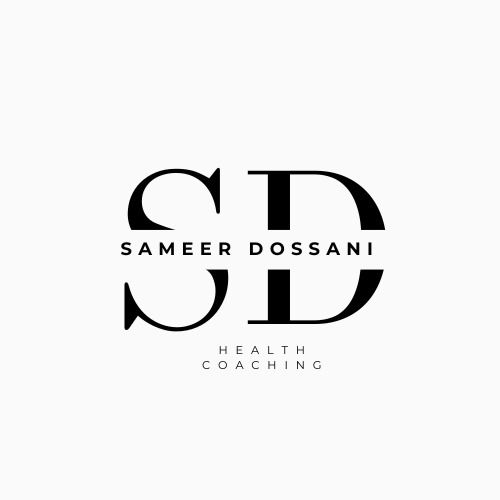Why Vegetarianism Failed Me
Jul 27, 2023
How many times since childhood do you think you’ve heard the phrase “Eat your fruits and vegetables”?
A hundred? A thousand? Maybe you’ve repeated the phrase yourself to your friends or your family?
When I was young I took the common sense advice to the extreme. At the age of 18 I gave up all animal products and lived on a diet of fruits and vegetables in some form or another. When I got married to someone from India, the idea of giving up meat was easy to understand but dairy was another matter (and in any case being a vegan in places like the Philippines was near impossible) so I introduced eggs and dairy. But in general I tried to follow the "common sense" advice and keep my diet to mainly the fruits and the vegetables. When our daughter was born in 2009, that’s mostly what we gave her as well.
Given that we were loading up on what we were told were healthy foods, I had no doubt that we were all going to be in optimal health. So it came as a bit of a shock when a few months after our daughter was born, my partner was diagnosed with Hashimoto’s hypothyroidism. The shock was mitigated by the fact that the doctors all indicated that this was “normal”. By “normal” I think they meant “fairly common”, which is true. But is it normal for a human to develop a serious hormone imbalance after childbirth?
That was the first in what turned out to be a fairly long list of health issues in my immediate family - kidney stones, pre-diabetes and severe asthma among them. How could this be the case if we were avoiding the “bad” foods and eating only the “good” foods?
These experiences ultimately led to me spending a lot of time going through the medical research. My research questions included the following: What is chronic disease? Do we know what causes chronic disease? What can be done to prevent or reverse chronic disease?
The answers I found were surprising. But what was more surprising was that I had never considered them before.
In the understanding of nutrition and health that I was taught, food was broken up into two categories. Healthy, low-fat foods that were mostly going to be vegetarian or vegan and unhealthy, high-fat foods, that were mostly going to be meat, dairy and eggs.
Despite the fact that even as I write these words I can see the reader nodding their head (”eat your fruit and vegetables!”) there is absolutely no evidence to back up this understanding of nutrition. In fact if you see nutrition in these terms you will fail to achieve optimal health.
There are lots of valid ways to understand nutrition but this isn’t one of them. There are lots of ways to look at the problem, but the simplest to me is this: the epidemic of chronic disease started in the 20th century and really took off after the second world war when there was abundant access to processed foods. One way to minimise your chances of falling sick is to look at foods in two categories “traditional foods”, meaning foods that people would have been eating prior to say 1900 and “industrial foods” or foods that really only took off after that. All of the foods in the latter category may not necessarily be a problem, but since we don’t understand which ones are problematic, it might be better to avoid all of them.
In my vegan and vegetarian days I was pretty reliant on industrial foods. Margarine was the alternative to butter and highly processed soy and wheat products were the alternative to meat. Even when I was cooking traditional foods like daal or saag paneer, I was cooking them in highly refined seed oils like canola or sunflower oil and often eating them with bread that included chemical raising agents and preservatives.
So “Eat what your great-grandparents ate” is great advice for people who are young and healthy. But for those of us who didn’t follow that advice and are now suffering, it’s probably not enough. When humans get sick, then tend to do so in specific and repeatable ways. The hormone insulin - which spikes whenever we eat but especially when we eat a meal high in carbohydrates - can get chronically elevated over time and this is known to play a causal role in the development of type 2 diabetes, many forms of cancer, cardiovascular disease and dementia.
Trying to find a diet to lower chronically high insulin levels can be easy or it can be hard, but it’s going to be extremely hard if you decide to avoid animal foods. That’s especially the case if you’re suffering from and vitamin deficiencies or mineral imbalances (as most of us are). The most nutrient dense foods on the planet - foods that have the micronutrients humans need packaged in a way we can easily absorb - are animal foods.
It took me a long time to understand all this and even longer to put it into practice. Once I learned a few easy principles it wasn’t difficult, but it did take a lot of pain and suffering to get there. I now dedicate my life to making sure others don’t have to go through what I did. If you’d like to do things an easier way, feel free to book a short call with me.
When I think of the damage I did to myself and my family just by believing the standard nutritional message, I get angry. When I think of that damage magnified millions of times over by people who are still believing what “everyone knows”, I get really angry.
Biology is complicated. But despite that complexity we’re still here. Our mere existence is a testament to the fact that whatever our ancestors were doing in terms of diet was enough for humans to survive - and for the most part, to thrive - for hundreds of thousands of years. Trusting that history is our best bet to ensure that we thrive in the here and now.
🌱 Ready to Find Your Path to Gut Freedom?
Stop trying to solve your Crohn's, Colitis, or IBD alone with conflicting advice. A personalized plan is the fastest way to clarity and relief.
On a free call, you’ll get:
✅ Clarity on your triggers – Identify the dietary and lifestyle factors uniquely impacting you.
✅ A tailored starting point – Get actionable steps to reduce inflammation and calm your gut.
✅ Real answers – Ask anything about your symptoms and healing (no topic is off-limits).
💬 “Working with Sameer gave me a clear path when I felt completely lost. This is the guidance I needed.” – Previous Client
Your personalized plan is a conversation away.

